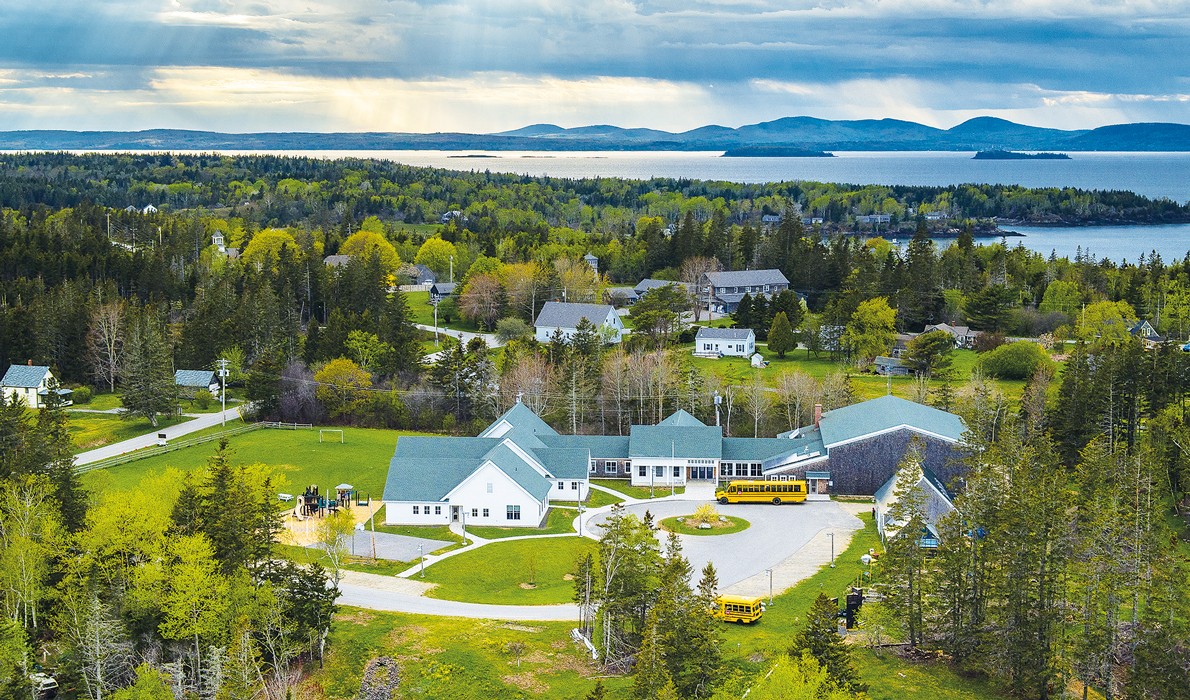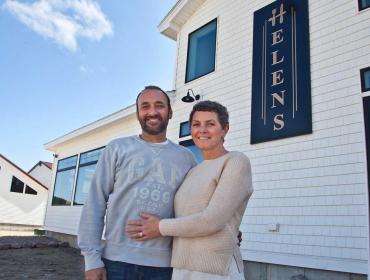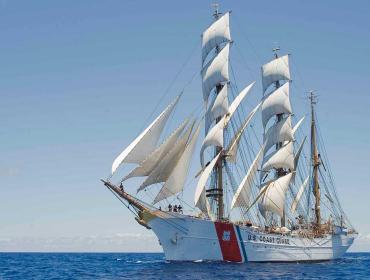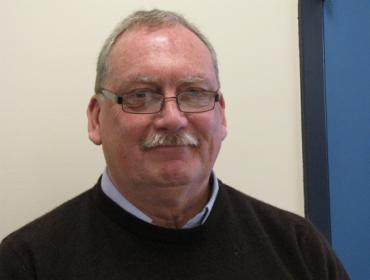Posted March 21, 2019
Last modified March 22, 2019
By Courtney Naliboff
High school students at Maine’s smallest K-12 public school will start the 2019-2020 school year with something new: a personal learning plan.
North Haven Community School staff have worked with Rural Aspirations this year to design a system that enables each high school student to have a voice in determining how he or she will learn the skills they need to succeed in their post-secondary lives.
“We’re really excited and it’s going to be student-centric,” said math and science teacher and high school house leader Lisa White. “I think it will strengthen our dialogue with families. We have a planning team with the student, parents, and teaching staff meeting together routinely throughout the school year, which will be nice. Because it’s student led and because parents are involved, hopefully the student winds up feeling more supported,” White said.
Planning teams will begin meeting with students in grades eight through 11 in May, when staff, students, and parents can discuss the range of available options. Students will have access to a full menu of traditional courses, some of which are being redesigned to be more interdisciplinary, such as a humanities course incorporating English, social studies, and arts content.
The opportunities for collaboration under the personal learning plans are appealing to teachers as well as students.
“As an art teacher, to be able to collaborate with other educators to integrate visual art, digital media, music, and drama into standard curricula goes beyond just making things more fun,” said art teacher and arts and enrichment coordinator Amanda LaBelle. “The intentional practice of weaving multiple ideas and concepts together not only has the ability to leverage academic achievement, but also fosters skills in problem-solving, critical thinking, creativity, and collaboration.”
Personal learning plans will also offer opportunities for students to engage in their community.
“Coming from a background in teaching citizenship and civics at another level, I think it’s pretty excellent what we can offer to students who are interested in integrating into the community,” said English and social studies teacher Amy Peterson. “I think it engenders community capital in a really cool way.”
The impetus for the change in programming came from community feedback, the school board’s strategic plan, and was inspired by the Pathways program currently operating on Islesboro.
North Haven Principal Ken Spinney considers personal learning plans to be part of educational best practice, a position that’s backed up by research. An opinion piece in the Hechinger Report,a journal of educational innovation, describes the success of the “ScholarShift” model, a blend of student-directed learning and off-campus experiences.
“Personal learning plans are part of best practice in general curriculum instruction that should lead to ongoing student academic, social and emotional achievement,” Spinney said. “No matter how we teach or what we do in the classroom, student engagement needs to be taken into consideration. Identifying student interests is an important facet of high quality education.”
Personal learning plans, by definition, will vary depending upon the student and the design team, but could include internships, work studies, exchange trips, community-based projects, access to online AP or college courses, intensive work in an area of interest such as the visual or performing arts, and familiar-seeming courses.
One tip offered by Korah Soll, the Rural Aspirations founding director and the educational design specialist paired with North Haven Community School, was to identify courses that could be integrated across curricula, such as the humanities, and those which should stay unaltered, such as world languages and mathematics.
As North Haven teachers implement personal learning plans, they hope students looking for more say as to the structure of their education consider North Haven Community School’s magnet program as an option.
“For students that are coming from larger school environments who are seeking to pursue their individual path, the possibility of getting really creative for them is one that might be really attractive to people who are into that, who want to have a say and want to have more autonomy in creating their own education,” Peterson said.
North Haven school seeks off-island students
North Haven Community School, on an offshore Maine island with just 350 year-round residents and a beautiful coastal landscape, is the smallest K-12 public school in the state, with an average of 65 students and a student teacher ratio of 1:5. The school is accredited by the New England Association of Schools & Colleges.
The school is now accepting 8th-12th grade student applications from students hailing from other Maine towns for its magnet school program for the 2019-2020 school year.
North Haven Community School's high school program is designed to help students succeed academically, become lifelong learners, build confidence, take appropriate risk, and be prepared for future educational and life opportunities. Foundational support in achieving students' success comes from unique educational opportunities, personalized attention from dedicated educators and staff, effective guidance, and a uniquely supportive island community.
For more information about applying, housing, and contacts, see: www.nhcshawks.org
Courtney Naliboff teaches at North Haven Community School.
Contributed by




